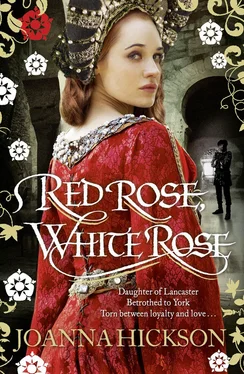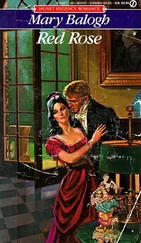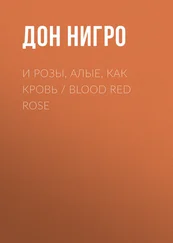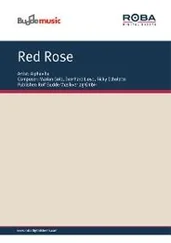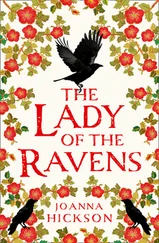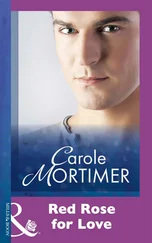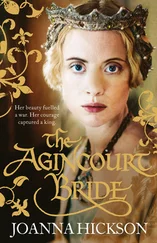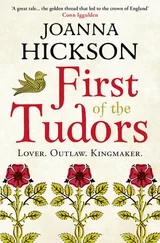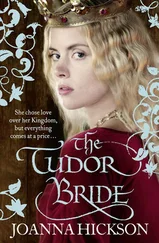‘The last time I rode on the pommel of a knight’s saddle it was in front of my father,’ I said, ‘when I was seven.’
Sir John turned to the young man who had brought the wineskin. ‘Tam, get my bedroll and tie it over the front of my saddle. For the comfort of Lady Cicely.’
I had lost my hat in the fall and my unruly hair was loose, tumbling down my back and no doubt tangled with spikes of gorse. In my torn skirts and mud-stained riding huke, with my wild mass of auburn hair, I was conscious of looking more like a camp follower than a future duchess. I remarked pointedly, ‘If someone could find my hat in the gorse, it would prevent my hair blowing in Sir John’s face while we ride.’
As I had hoped, Tam glanced up from his task. ‘I will find it for you, my lady,’ he said with a shy smile. He did not wear a knight’s spurs and I guessed he was no more than twenty.
I smiled back and thanked him but Sir John frowned. ‘Make it quick, Tam. We must be going.’
This prompted me to ask the question uppermost in my mind. ‘And where are we going, Sir John?’
‘To Brancepeth of course,’ he replied tersely.
Brancepeth was Lord Westmorland’s castle, some twenty miles distant, on the road to Durham. It was not the answer I wanted to hear. ‘Surely Raby is more or less on the way?’ I pointed out.
He shook his head. ‘It is a detour and I must get to Brancepeth before nightfall. I will send a message with one of my men to let your mother know where you are.’
I forced a smile. ‘Thank you, Sir John. My mother will be relieved. I hope the present Countess of Westmorland will not object to accommodating a guest from Raby.’
Ignoring my remark he turned impatiently to inspect the squire’s efforts with the bedroll. ‘That will do, Tam. Now fetch Lady Cicely’s hat and let us be on our way. We will leave her injured horse here. Without doubt there will be a search party and they will find the mare.’
When Tam stirruped his hands to help me mount the destrier, Sir John looked surprised to see me settle myself astride the padded pommel, arranging my skirts modestly on either side of the horse’s withers. However he made no comment and swung himself quickly up behind me. The rest of his retinue fell into line, Tam leading the sumpter with the two prisoners attached. Since we could only progress at their walking pace I had to concur with my companion’s assertion that we would hardly reach Brancepeth castle by dusk.
In addition to the discomfort of riding on the pommel, I felt ill at ease at being thrown so close to this undeniably attractive man. Not since my father’s enthusiastic embraces during my childhood had I ever been physically so close to any male, even my brothers. It was impossible to avoid contact with him and I confess that I found it disturbingly exciting. Sir John remained silent behind me and, clinging to the mane of his big bay stallion as it sidled and pecked at the unaccustomed weight, I distracted myself by mentally analysing my situation. Brancepeth Castle was the seat of Ralph Neville, second Earl of Westmorland, and it should follow that I would be kindly treated there and returned as soon as possible to my home at Raby. But recent family history told me that this was far from certain.
At first sight the dispute between the Nevilles of Raby and the Nevilles of Brancepeth appeared to arise directly from my father’s death, but what was actually at the root of the family feud was my parents’ marriage. For both it had been a second marriage. My father had already sired seven children, and his first wife died giving birth to the eighth. I do not know what caused the death of my mother’s first husband, only that she was a widow at eighteen with two young daughters. And so there were already several infants in the nursery at Raby even before she and my father added another eleven children – theirs was undoubtedly a passionate love match. It would have been thirteen if twin boys had not sadly died within hours of their birth and almost taken our mother with them. I was the youngest of the family and I knew that the man whose saddle I now shared was my father’s grandson. The fact that I had never met him before was some indication of the distance of our relationship, even though as blood kin we should have had a close affinity. Paradoxically and through no fault of our own, we did not.
Although he had been dead for seven years, I still thought of my father as a giant among men, in every sense of the word. He had, indeed, been extremely tall – a head taller than most of his fellow noblemen, a physical feature I had inherited, being as tall as most men and towering over many. He had also been considered clever, charming and ruthless, a skilled soldier and one of the most successful military and political tacticians of his generation. However, when it came to writing his will his tactics had been, let us say, questionable. The Westmorland title had perforce to follow the senior male line but, controversially, he left most of his property to his second wife, my mother. Therefore while Sir John’s older brother Ralph, the second Earl of Westmorland, held and resided at Brancepeth Castle, my mother held the three other Neville palaces, Raby and two vast castles in Yorkshire, together with all their manors and other sources of revenue. As may be imagined, this arrangement had not gone down well with the Nevilles of Brancepeth, who resented what they called blatant favouritism and frequently found ways to express their resentment and press home their claim to a greater legacy. My fear was that I might be used as a tool to further their cause.
After plodding in silence across high moorland tracks for a couple of hours, passing several well-fortified farms, we dropped down into a dale where a small but sturdy castle stood sentinel over a bridge spanning a fast-flowing river. The crossing was guarded by a posse of men-at-arms, who saluted Sir John. As we rode through, one of them shouted a bawdy comment about the knight’s ‘saddle-doxy’ which Sir John studiously ignored but which had the effect of breaking the tense silence that had developed between us.
‘I must apologize for the guards’ uncouth manners, my lady,’ he said when out of their earshot. ‘They do not recognize you or they would not dare.’
‘Whose men are they?’ I asked. ‘And what castle is this?’
‘It is Witton Castle, held by Sir Ralph Eure, a tenant of my brother the earl. We have just crossed the River Wear.’
‘Only half way to Brancepeth then?’ I glanced at the western sky, where clouds were already blushing faintly pink.
I could not see Sir John’s face but I felt him tense in the saddle. ‘Yes, we make slow progress – too slow for my liking.’ He turned to beckon the squire forward. ‘Take the reivers to the captain at the Witton guardhouse, Tam. Sir Ralph can keep them in his prison until the session judge comes to Durham. We will water the horses while you sort it out.’
I watched the old reiver, the wizened man who had earlier held the reins of my mare, as he stumbled away behind the sumpter horse. No longer grinning, he now looked weary and desperate. I thought he would be grateful to sit down, even in a stinking dungeon, and very nearly summoned a pang of sympathy, until I remembered his sinister remark about me doing a dance. There was no doubt in my mind that he would have had no sympathy for me had I been subjected to whatever pain or humiliation ‘dance’ was a euphemism for. At least I had escaped the ‘dance’, whatever the unknown future I was riding into might have in store.
Presently we joined a well-trodden highway where a milestone indicated seven miles to the city of Durham, and I knew that we were nearing Brancepeth. This was mining country and the high moor above the road to the north was peppered with numerous adits, holes that had been opened into the hillside, and a web of paths leading between them, worn by the feet of miners and the wheels of the carts. They wove a pattern across the winter-brown grass of the slopes down to the river where the coal was brought for transport to the coast. I knew that these mines were an important source of income to the Brancepeth estate; without them the earl would have been even more impoverished than he claimed to be.
Читать дальше
